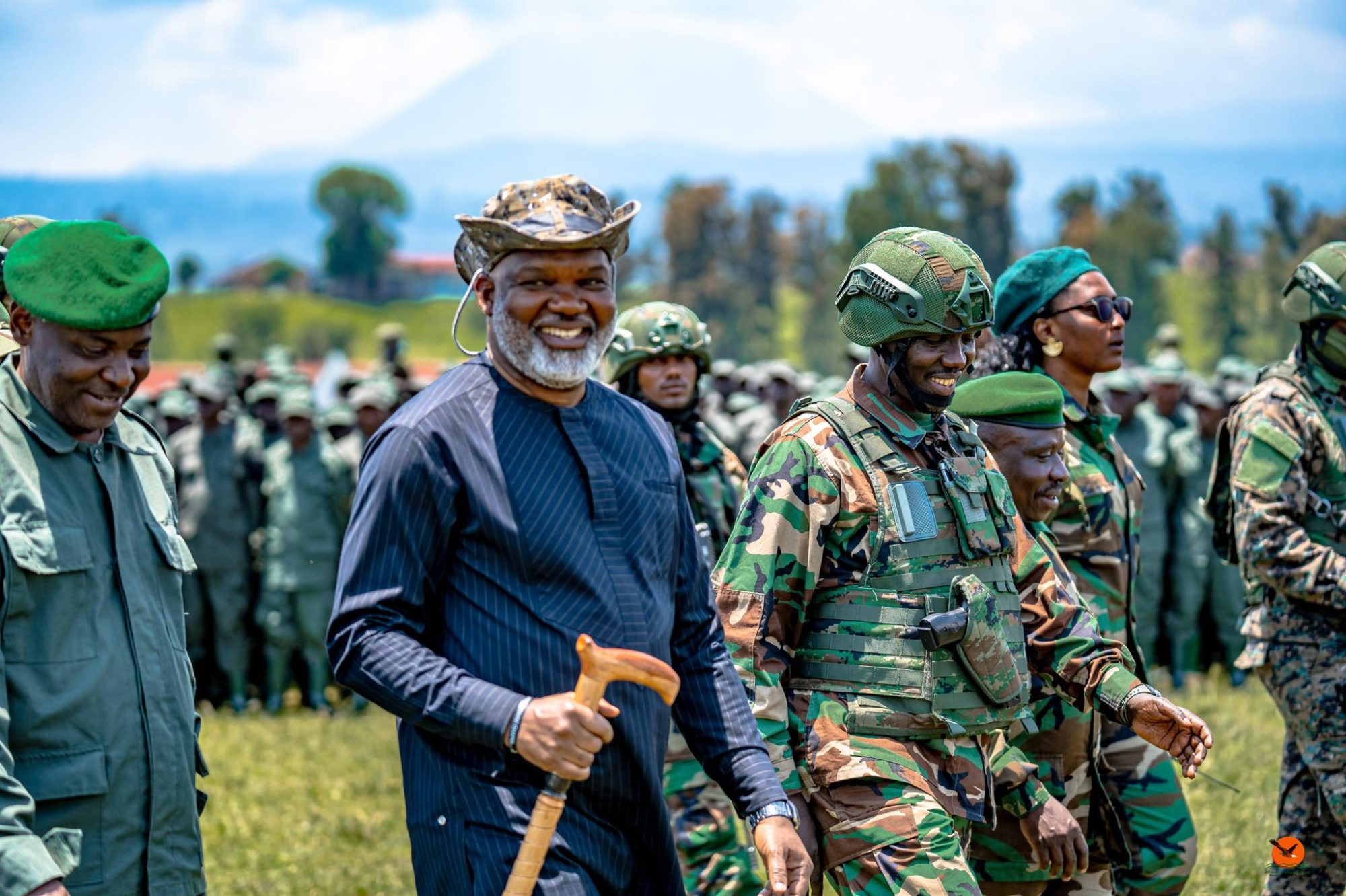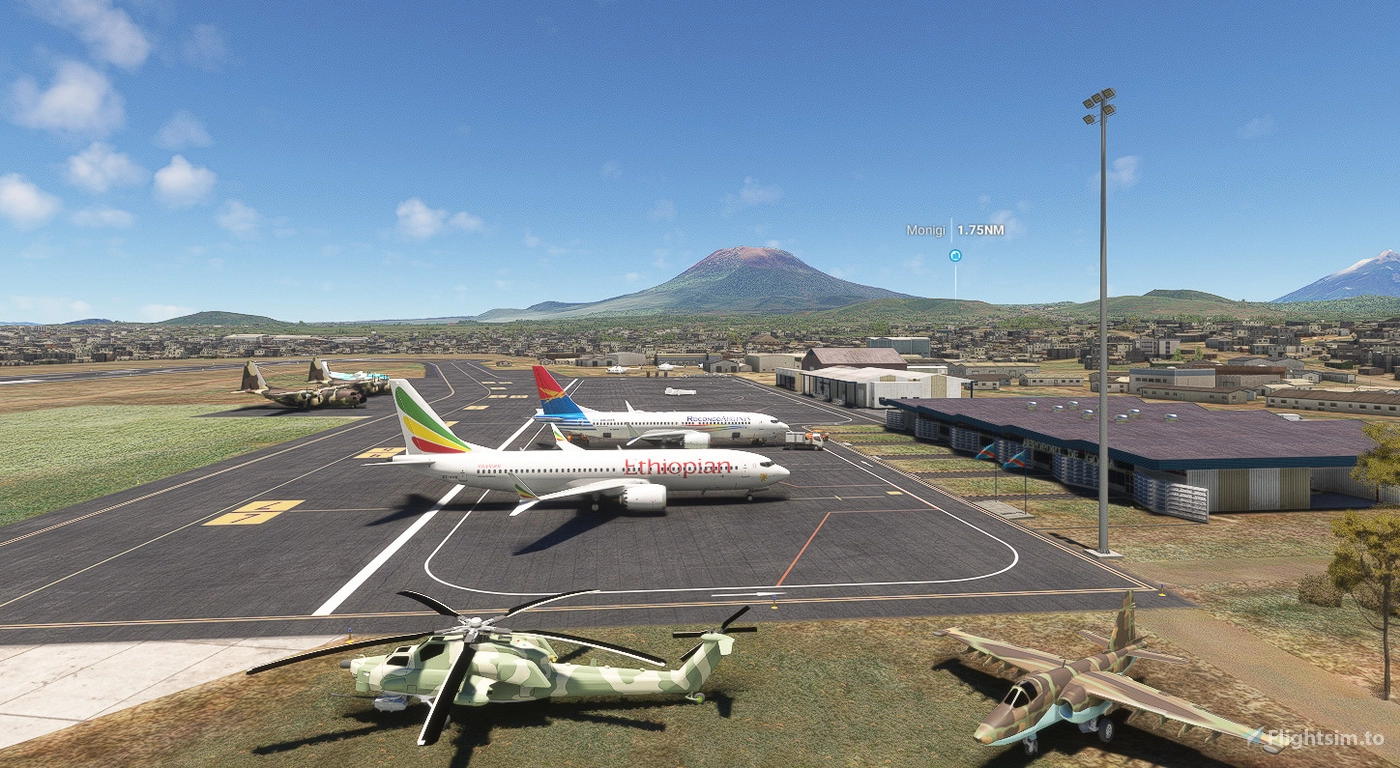The M23 rebel movement has rejected a decision by President Félix Tshisekedi’s government to prepare for the reopening of Goma International Airport, describing Kinshasa’s move as “illusory” and devoid of legitimacy.
In a statement issued on November 16 by the Alliance Fleuve Congo (AFC/M23), the group said only it has authority over the facility, which has been under its control since the fall of Goma in late January.
M23 fighters overran Goma on January 27 and secured the airport the following day, prompting its closure and the suspension of all flights.
Humanitarian agencies have since warned that the shutdown severely impeded relief operations in North Kivu, as air access to the region’s largest logistical hub collapsed.
The airport holds major strategic value. It is the key aerial gateway to the eastern DR Congo and a vital entry point for humanitarian supplies, peacekeeping rotations and troop movements.
Control over Goma Airport not only gives the rebels military leverage but also reinforces their administrative footprint across a region they now describe as “liberated territory.”
In its latest statement, the AFC/M23 accused the government of attempting to exercise authority over an area it says it “deliberately plundered and sabotaged” before retreating.
"The illusory decision by Mr Tshisekedi Tshilombo, approved by the Council of Ministers, to plan the reopening of Goma Airport from Kinshasa is entirely unacceptable," the statement, signed by the group spokesperson Lawrence Kanyuka reads.
"The Kinshasa regime has neither the legitimacy nor the right to consider reopening airport infrastructure located in liberated territory, which it deliberately plundered and sabotaged."
The movement insisted that any reopening of the airport would be carried out exclusively by its own structures, claiming the Kinshasa government has “neither the legitimacy nor the right” to intervene.
The group also reaffirmed that it is monitoring military deployments along all front lines, characterising security cooperation between the government and foreign forces as a threat to its positions.
It distanced itself from the ongoing political dispute between Kinshasa and Kigali, insisting the diplomatic standoff “in no way concerns” M23 and must be resolved without drawing the rebels into regional tensions.
"We wish to state clearly once and for all that the dispute initiated and continuously fuelled by Kinshasa with the Republic of Rwanda in no way concerns the Alliance Fleuve Congo/Movement of March 23 (AFC/M23)," Kanyuka said.
"The Kinshasa regime alone is responsible for its actions toward neighbouring states, and it must resolve its disputes without attempting to involve our organisation."

Since January, M23 has consolidated control over large swathes of eastern DR Congo—territory rich in coltan, gold, tin and other minerals essential to global electronics supply chains.
In areas under its authority, the movement operates a parallel administration with its own budget, tax system and security structures.
The group is estimated to generate well over a billion dollars in monthly revenues from mineral taxation and associated trade, funds it says it channels into rebuilding efforts.
Local accounts and independent assessments indicate that M23 has undertaken infrastructure projects including installing power transformers, rehabilitating damaged roads and attempting to restore public services.
The rebels argue that such efforts demonstrate their governance capacity, while critics contend they entrench an illicit economy and weaken state authority.
The dispute over Goma Airport comes as Kinshasa and M23 attempt to navigate a fragile peace process.
This year, both sides signed a framework agreement in Qatar under a mediation effort involving the United States, African Union and Qatari authorities.
The accord covers ceasefire monitoring, the return of displaced populations, humanitarian access and the protection of judicial institutions. However, implementation has lagged, and military confrontations have continued.
Reasserting control over Goma Airport is widely viewed as a crucial test of the peace framework. For the government, reopening the runway represents an attempt to reclaim sovereign authority and restore humanitarian corridors.
For M23, maintaining command of the facility strengthens its bargaining position and affirms its de facto governance of North Kivu.
With both sides holding firm, the standoff underscores deeper political fractures over legitimacy, governance and control of the region’s mineral wealth—issues that remain at the centre of the conflict and will continue to shape the trajectory of negotiations in the months ahead.


